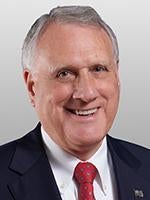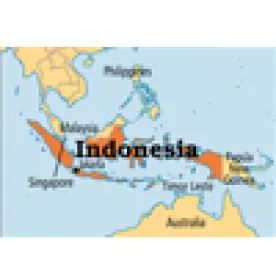Indonesia’s new President Joko Widodo (“Jokowi”) is sending strong signals about how he wants to position the country as a self-sufficient, regional power. He laid out reform priorities in November to CEOs from APEC countries: 1) simpler, faster investment licensing; 2) higher but cleaner and more efficient tax collection; 3) cuts in the country’s massive fuel subsidies with savings invested in physical and social infrastructure to spur growth; and, 4) public investment in human resources — health, education, poverty reduction. The President did indeed cut fuel subsidies, which unleashed temporary inflation and protests, but he has responded with promises of new infrastructure and social investments to fight poverty and improve competitiveness.
If Indonesia’s new government overcomes deeply entrenched interests and forges new economic policies to unlock investment in innovation, human capital and natural resources, it can reach the 7 percent annual growth needed to cut poverty and build support for reform. Global headwinds pose serious near-term challenges, which President Jokowi seems determined to meet by strengthening Indonesia’s economic and regional strength and self-sufficiency. In the short-run, however, Indonesia must weather the current worrisome emerging market currency crisis.
President Jokowi has already taken some bold action: to stop an estimated $20 billion per year in illegal fishing losses by seizing foreign boats, to warn China away from Indonesian waters and resources, and to commit to spending billions of dollars to expand military and maritime capacity and to ramp up security cooperation with the U.S. At the same time, Indonesia has committed to join the Beijing-sponsored Asian Infrastructure Investment Bank. The President has repeatedly promised to streamline investment procedures and business requirements and to provide tax and other incentives, and infrastructure, to be competitive for much-needed foreign investment.
This week, however, Indonesia’s courts upheld the government’s ban on exports of unprocessed ore despite foreign investors’ dismay at being forced to investment in Indonesian processing. Producers elsewhere are ramping up, so Indonesia must forge productive partnerships with foreign investors to develop its substantial mineral resources. Indonesia’s Minister in charge of State-firms this week also announced that notoriously-corrupt State-owned oil company Pertamina would have funds and new leadership to enable major reform and investment. Pertamina is key to public revenues, subsidies and domestic energy supplies; it will be a bellweather for reform. The state-owned electricity monopoly is also slated for deep reform.
Meanwhile, local unions have called for cuts in coal production (Indonesia is the world’s largest coal exporter) to boost world prices, as the government tendered for 25 new geothermal plants to boost energy self-sufficiency. Indonesia also just announced a $95 million government initiative to dramatically improve outmoded cocoa production practices and to rationalize cocoa processing. Indonesia is the world’s third largest cocoa producer, but uses less than half its cocoa processing capacity; it hopes to become more productive with the involvement of major new players like Cargill and Barry Callebaut. Productivity must be a priority economy-wide.
Spluttering Chinese and global growth have sent prices for oil, coal, copper, nickel and other Indonesian exports down, but also cut its energy import and subsidy costs. Moody’s and JP Morgan estimate that Indonesia’s current account deficit (a worry to investors) could shrink by as much as 40 % from 3 percent of GDP next year if oil averages $60 per barrel globally. Yet, with US growth and higher interest rates also expected, foreign bondholders are abandoning the Russian ruble and emerging market currencies generally. Indonesia’s central bank intervened repeatedly after the rupiah fell to a 16-year low against the dollar this week.
Indonesian growth, while dampened, is projected at a still-strong 5.2 percent for 2015. This appears to be the best opportunity in many years for the world’s fourth most populous country to take concrete steps to bolster investment in housing and construction, health and education, railways and roads, agribusiness and industry, security, and energy and power as well as to enable the “start-up” aspirations of its optimistic youth. Indonesia’s quest for self-sufficiency and poverty reduction will require U.S. and other foreign investment, and competition and innovation, not protection, finally to reach economic reach lift-off.
In addition to global challenges, President Widodo faces domestic opposition, including from the Subianto and Bakrie-led Golkar party camps. If he can make progress, and lift Indonesia from its place as 114th out of 189 places among the World Bank’s Doing Business Indicators, Indonesia will be one of the best emerging market opportunities for investors.





 />i
/>i
